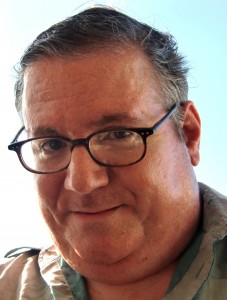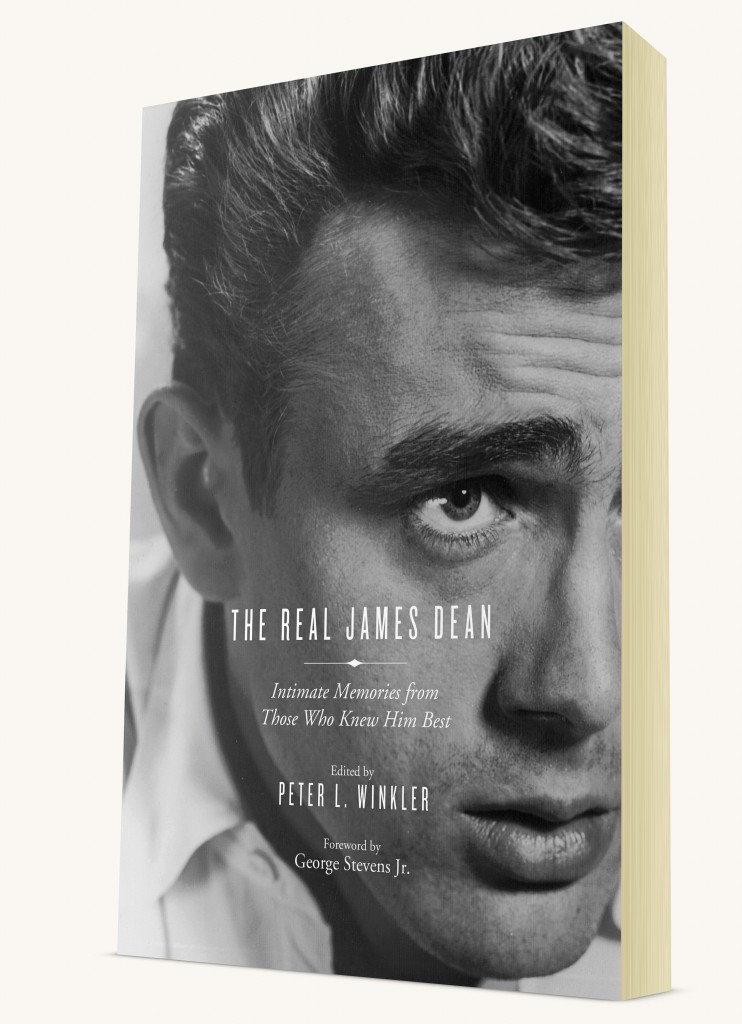 Two-time Academy Award nominee James Dean died so young and so suddenly that the public was left with few interviews and little record to understand who he was as an actor and a person. Over the years, though, those who knew him best offered their own memories of him in interviews, in magazine articles, and in books. Today, many of those recollections are in print for the first time in years thanks to The Real James Dean: Intimate Memories from Those Who Knew Him Best (August 1, 2016), a collection edited by Peter L. Winkler, a Los Angeles-based film journalist. He sat down recently to talk about his fascination with Dean, his process for tracking down old interviews and articles, and his favorite Dean role.
Two-time Academy Award nominee James Dean died so young and so suddenly that the public was left with few interviews and little record to understand who he was as an actor and a person. Over the years, though, those who knew him best offered their own memories of him in interviews, in magazine articles, and in books. Today, many of those recollections are in print for the first time in years thanks to The Real James Dean: Intimate Memories from Those Who Knew Him Best (August 1, 2016), a collection edited by Peter L. Winkler, a Los Angeles-based film journalist. He sat down recently to talk about his fascination with Dean, his process for tracking down old interviews and articles, and his favorite Dean role.
Your first book was Dennis Hopper: The Wild Ride of a Hollywood Rebel. What led you to choose James Dean specifically as your next subject?
I first became interested in James Dean, nearly to the point of obsession, after watching writer William Bast’s made-for-television movie about his former friend and college roommate, Dean, when it was broadcast in 1976. Fortunately, this occurred during the first revival of interest in Dean in the mid-1970s, which produced several biographies of the actor and a documentary. I devoured them all and watched his films repeatedly on TV and at revival theaters. I even got the opportunity to interview and lunch with Bill Bast, who was a gracious person. I was interested in producing an anthology similar in concept to The Real James Dean about 15 years ago, but my literary agent at the time dissuaded me from doing it, so I put it on the back burner. After finding success with my biography of Dennis Hopper, I decide to revive the Dean project. There’s a lesson to be learned here about perseverance—or bull-headed stubbornness, or . . . something.
Do you see similarities between the two actors?
Dennis Hopper idolized James Dean after working with him in Rebel Without a Cause and Giant. Whatever similarities they shared were the result of Hopper’s attempts to emulate Dean. Dean attended the Actors Studio; Hopper studied there after Dean’s death. Dean dabbled in photography, so Hopper took up photography. Dean fancied motorcycles and sports cars, so Hopper began driving them. “Dean was the symbol,” Hopper told journalist Stephen Rebello in 1990. “I was just a follower. When I came to Los Angeles, Montgomery Clift and Marlon Brando were getting their way and changing things. I adapted their ways because they worked. I wasn’t [any of those three], but I was very conscious of a way of life that was evoked through their behavior. I didn’t feel that ‘the life’ separated from ‘the work,’ and I thought that by emulating that lifestyle, I’d probably be able to work in the same way. I still maintained my own personality, but I was suddenly driving a sports car, wearing Levis and T-shirts, riding motorcycles, playing bongo drums, hanging out in coffeehouses and listening to jazz. And drinking. Because Montgomery Clift did.”
Dennis Hopper was a straight narrative biography. Why did you end up switching to a collection of interviews and writings for James Dean?
There have been many biographies of James Dean, but there’s never been a collection of Dean’s friends, family, and colleagues’ memories of their experiences with him that they recalled in articles and autobiographies they wrote or in interviews they gave. The material naturally lends itself to the anthology format.
The book includes so many interviews and writings from so many sources, many of them out of print. What was your research process like? How long did it take? What were your most valuable resources?
I started by combing through the bibliographies in the biographies of James Dean that have been published over the years, which list some of the articles and books that I decided to reprint or excerpt in The Real James Dean. I then added material to my table of contents that I became aware of independent of those bibliographies. I can’t really remember how long it took. Maybe a month or two. I keep meaning to keep a diary recording my daily progress when I’m working on a book, but after working all day on it, I don’t feel like writing about the process. The essential resources I used were eBay, which was great for finding copies of old movie magazines like Photoplay; Google; and the Margaret Herrick Library in Beverly Hills, California, which is maintained by the Academy of Motion Picture Arts and Sciences.
 What was the most difficult interview or piece of writing to track down?
What was the most difficult interview or piece of writing to track down?
Dean’s girlfriend Pier Angeli gave an exclusive interview to the National Enquirer in 1968. It was very tough to track down a copy of the issue of the Enquirer containing her interview. The Enquirer is intended to be a disposable newspaper; very few people collect them, and libraries don’t subscribe to it. I was finally able to purchase a copy from a seller on eBay.
Of the people who shared memories of Dean’s life in the book, who do you most wish you could talk to yourself? What would you want to ask them?
I’d like to ask James Dean if there was ever a moment when he felt at peace with himself. I’d also like to know if he and Rev. James DeWeerd had sex and if it was consensual.
Which of Dean’s films is your personal favorite? Why?
Rebel Without a Cause still feels contemporary today whereas East of Eden and Giant take place in period settings. While Dean is the best thing in Giant, it’s still a supporting role; he’s onscreen for only thirty minutes. Dean is at his best in Rebel; it contains his most fully developed performance. Nicholas Ray was on Dean’s wavelength and granted him a great deal of creative freedom. The story and characters are relatable, and Ray’s film sense surpassed Kazan’s and Stevens’s.
The Real James Dean publishes August 1, 2016 and is available wherever books or e-books are sold.
1 Comment
can we get a copy of the interview of Pier Angeli by the National Enquirer in 1968 ?